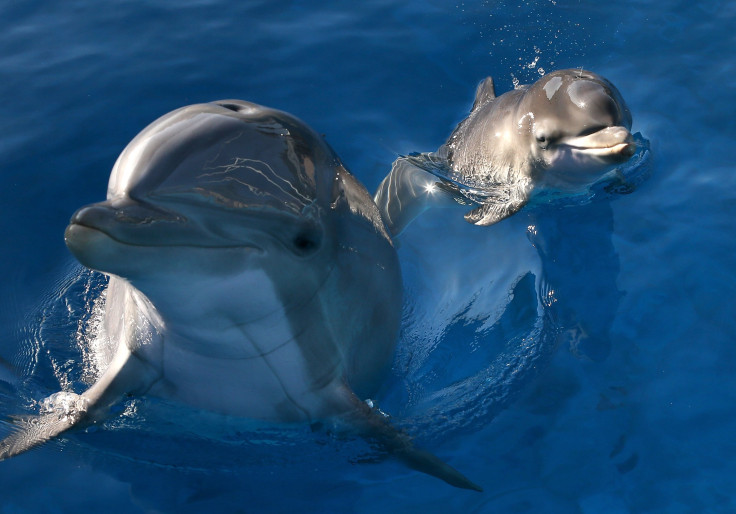Unusual Shark Attacks On Dolphins: Are 'Trophy Hunters' To Be Blamed?

A family of dolphins in Australia's Monkey Mia tourist spot were brutally attacked by sharks, raising concerns about the lives of the marine mammals. On Wednesday, local ecotourism operators in the Perth area blamed the attacks over the past month on fishermen hunting for sharks as "trophies" to post on social media.
The famous Monkey Mia #dolphins appear to have suffered severe attacks by #sharks Story via ABC News. https://t.co/D2jmIYbQJW Video:ABC News #Australia #SharkAttack pic.twitter.com/cyZfvzePqU
— Dr Daniel M Moore (@DanielMMoore_) February 8, 2018
The attacks at the world-heritage-listed marine park in Western Australia shocked tourists as well as locals, who have a strong connection with the dolphins. Five dolphins visit Monkey Mia up to three times a day to interact with tourists and to be fed fish from the beach.
In recent weeks, three of the five dolphins were attacked by sharks after shark hunters allegedly used blood to attract the predators close to the shores.
"These are healthy dolphins. These aren't baby dolphins. They're not sick, old dolphins. They're dolphins that … have been coming here for 20 to 30 years," local ecotourism operator Leon Deschamps said, adding that the attacks were extremely unusual, according to abc.net.au. "Kiya has a small bite, Puck has a larger bite behind the base of the tail, but they're strong animals so we're certainly hoping both of those guys pull through."
Deschamps said that the influx of fisherman to the state's coast using blood and large baits to attract and catch sharks were partly to be blamed.
"These dolphins have lasted their entire lives without having a shark experience and for this to coincide with the explosion we've seen with trophy shark hunting [in the area], it seems like a little bit too much of a coincidence," Deschamps said.
"We're a community of hunters. We're a community of fisherman … but the explosion we've seen in trophy shark hunters coming to what is a world-heritage-listed marine park — it's intense. It's massive," the operator added. "It's a pretty serious issue for when these guys are doing it for nothing more than basically Instagram likes, the social media fame."
According to University of Western Australia researcher and Shark Bay Dolphin Research Alliance co-director Simon Allen, one of the dolphins attacked by the sharks only has 50 percent chance of survival.
"Not that I am a vet, but it's certainly a serious wound and we have our fingers crossed that she will survive," Allen said. "But we really don't know for sure."
While most local operators blamed shark hunters, the Department of Biodiversity, Conservation and Attractions disputed the claims.
"I haven't seen any scientific evidence to back that up. What we do know is that each year shark attacks happen on the dolphins," spokeswoman Kath Roberts said. "This is a natural occurrence. These are wild dolphins. They live in a place called 'Shark Bay.' Their main predators are sharks and this is just the cycle of life... It mainly occurs in the warmer months between November to February and that's when we know that the shark predation is at its greatest."
© Copyright IBTimes 2024. All rights reserved.











